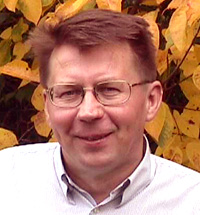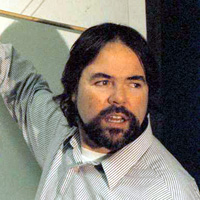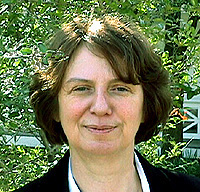|
Yrjö Sepänmaa (University of Joensuu.), November 3, 1998, EESAT 320A, 7:00 pm A Lecture on Applied Environmental Aesthetics The question of what aesthetics is, morenarrowly applied aesthetics, and even more narrowly applied environmental aesthetics, closely follows the question of who is an aesthetician, more precisely an applied aesthetician (or 'aestheticist,' like 'ethicist'),and even more precisely an applied environmental aesthetician (aestheticist).The delimitation can be made according to a bipartite division: there are applied aestheticians who descend from the tradition of academic philosophical aesthetics, and there are applied aestheticians that rise from the area of specialized sciences. In addition to the second group, there are hidden applied environmental aestheticists in environmental administration and politics and various environmental professions. Yrjö Sepänmaa is a Professorof Literature at the University of Joensuu, Finland. He is the author of The Beauty of Environment: A General Model for Environmental Aesthetics. He is now working on a book dealing with concreate applications of environmental aesthetics to real world problems. Professor Sepänmaa is the organizer of a series of international conferences on environmental aesthetics at the University of Joensuu. |
|
 |
Bryan G. Norton (School of Public Policy, Georgia Institute of Technology), September 18-20, 1998 An Introduction to Environmental Ethics for Environmental Scientists and Environmental Professionals |
|
Ricardo Rozzi (University of Connecticut, Institute of Ecological Research Chiloe), September 18-20, 1998 An Introduction to Environmental Ethics for Environmental Scientists and Environmental Professionals |
|
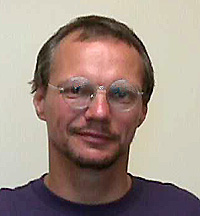 |
Kurt Jax (Center for Ethics in the Sciences and Humanities, University of Tuebingen), September 9, 1998 Managing Parts and Wholes: Yellowstone and the Concept of the Ecosystem Many ecological concepts are defined and used in vary ambiguous and methodologically problematic ways. This has important consequences for communication and theory development within the scientific community. It is the main thesis of this study that this ambiguous state of ecological terms and concepts does also influence the possibilities of determining precise aims of biological conservation and the options of conservational evaluation in a problematic manner. This is demonstrated for a central conceptual field of ecology, namely that of ecological units. Ecological units are understood as those units which comprise more than a single organism and which are object of ecological research, i.e. population, community, or ecosystem. The aim of this study is to demonstrate which basic methodological problems and possibilities exist in connection with the definition of ecological units and how they influence the determination of conservation aims and evaluation. |
|
Catherine Larrère (Université Michel de Montaigne, Bordeaux III), February 24, 1998, GAB 310, 7: 30 pm Environmental Philosophy in France Catherine Larrère is Professor of Philosophy and Chair of the Department of Philosophy at the Université Michel Montaigne/Bordeaux III in Bordeaux, France and lives in Paris. She is a member of the editorial board of Environmental Ethics, the journal. She is author of Les Philosophies de l'Environnement, and with her husband, Raphaël Larrère, of Du Bon Usage de la Nature (both books reviewed by Pete A. Y. Gunter in either a recent or upcoming issue of Environmental Ethics, the journal). The Larrères are also editors of La Crise Environnementale, a conference proceedings which include, in addition to papers by distinguished French ecologists and philosophers, papers by Bryan G. Norton, Michael Zimmerman, and J. Baird Callicott. Professor Max Oelschlaeger devotes the second half of his seminar in Postmodern Environmental Philosophy to Professor Larrère's paper. Professor Pete A. Y. Gunter responds to Professor Larrère's remarks. Discussion follows. |
|
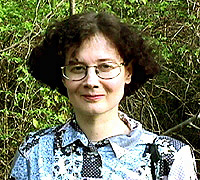 |
Leena Vilkka (University of Helsinki), February 19, 1998, University Union 413, 7: 30 pm Ecological Anarchism: Natural Values and Animal Rights in Practice Leena Vilkka will discuss the environmental philosophical backgrounds of the Animal and Earth Liberation Fronts and evaluate the moral justification of illegal environmental actions. Leena Vilkka is a researcher at the Academy of Finland and a lecturer in environmental philosophy at the University of Helsinki, where she is involved in The Project of Environmental Philosophy. She is the author of The Intrinsic Value of Nature, Oikeutta luonnolle: Ympäristöfilosofia, eläin ja yhteiskunta (Justice to Nature: Environmental Philosophy, Animals, and Society), Ympäristöetiikka (Environmental Ethics), and Eläinten Tietoisuus ja Oikeudet (Animal Consciousness and Rights). She is also an environmental activist who chairs two Finnish organizations, the Wolf Group and the Green Union for the Protection of Life. |
